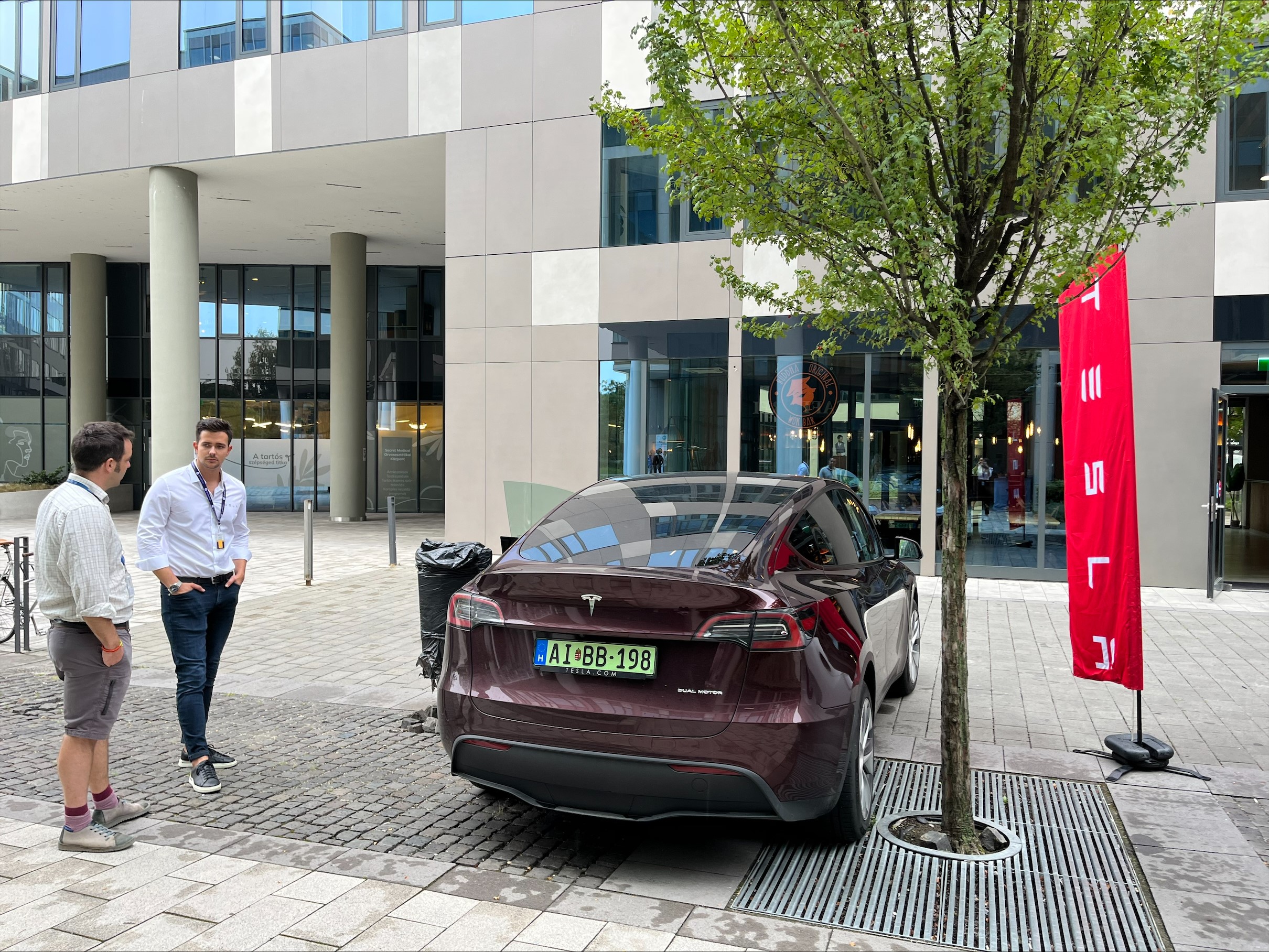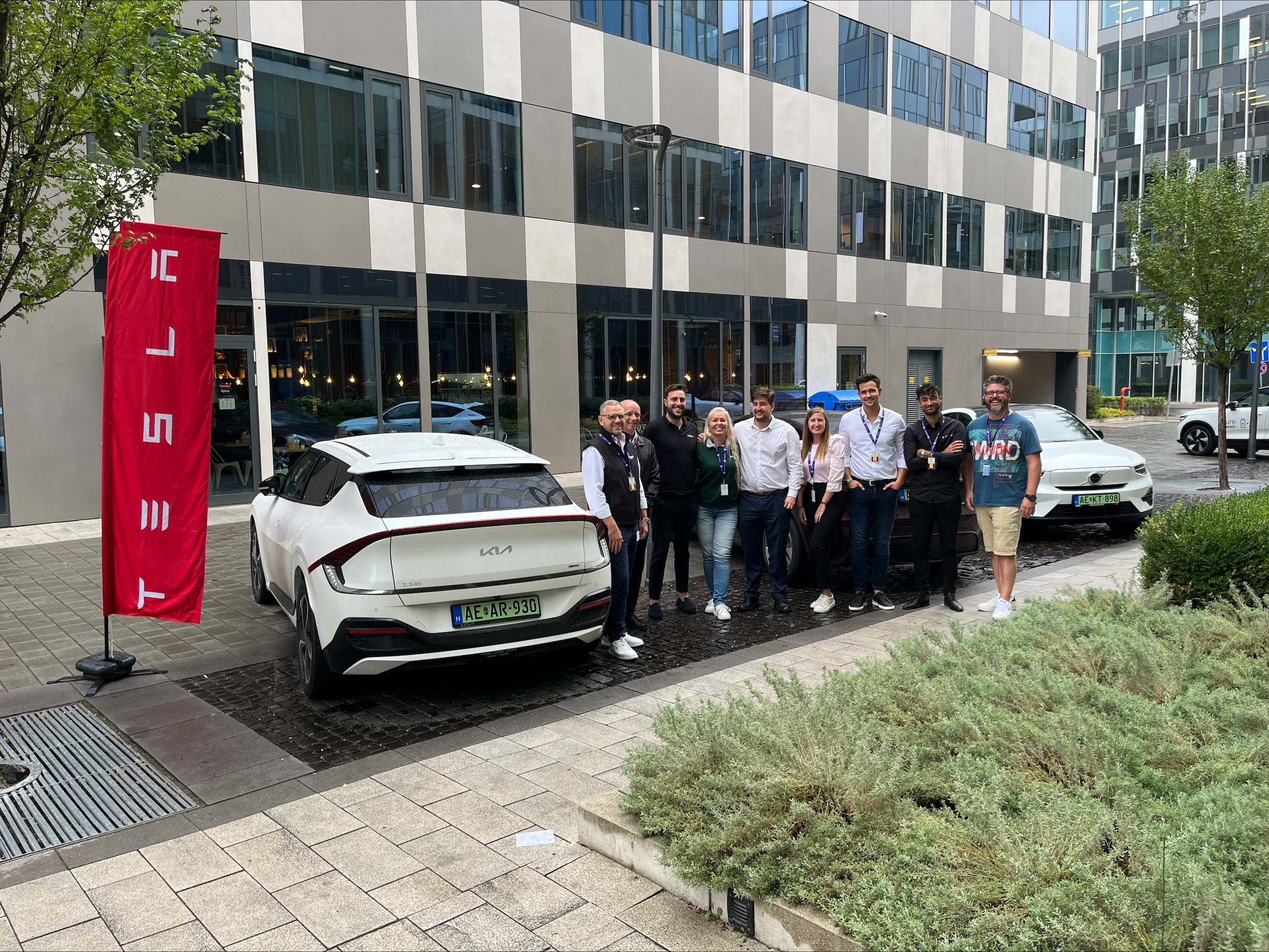Leading the charge: GE HealthCare’s transition to electric vehicles (original) (raw)
In a bold step toward a more sustainable future, Damion Bennett, GE HealthCare’s global fleet operations & sourcing manager, and his team, spearheaded an ambitious transformation: converting the company’s fleet of 12,000 vehicles from internal combustion engines (ICE) vehicles to electric vehicles (EVs), starting across Europe. This strategic shift is an essential step towards reducing the company’s overall environmental footprint.
Identifying solutions that make a meaningful impact in addressing global environmental challenges is a shared focus area for the healthcare industry. “Particularly in Europe, we find that in the bid process, customers use a company’s sustainability initiatives as part of their criteria for considering purchasing our products,” Bennett said. “Introducing EVs into our fleet demonstrates our commitment to climate solutions and strengthens customer partnerships.
Accelerating emissions reduction
Transportation remains one of the largest contributors to greenhouse gas (GHG) emissions, and fleet vehicles play a significant role. In fact, GE HealthCare’s global fleet represents approximately 25% of the company’s operational emissions. With a 2030 goal of 42% operational emissions reduction from a 2022 baseline year, the Bennett’s team recognized the potential impact and added several EVs to the European fleet over the past year.
“EVs require only 30% to 40% of the energy that gas-powered vehicles need to travel the same distance. They are more energy efficient and produce less pollution than ICE vehicles. With electricity generally being cheaper than fossil fuels, GE HealthCare also benefits from a cost perspective,” said Marie Drouot, Leader Environment & Sustainability.
The significant reduction in energy consumption is where EVs lead. Multiplying these savings over thousands of miles means EVs are delivering not just emissions savings but cost savings, too.
Securing colleague endorsement
The program’s success is also attributed to the support from colleagues across the European Union (EU). Transitioning to EVs is a significant change, and colleague acceptance has been crucial to their adoption. Bennett and his team placed carbon emissions caps on ICE vehicles that the company could purchase in the EU, promoting the adoption of hybrid vehicles that do not require a charging station. Gradually, with a focus on education and engagement through interactive workshops, test drives and information sessions, colleagues gained experience driving a lower-emissions vehicle. Now the team is moving colleagues from hybrids and plug-in hybrids to 100% EVs.
“What we found is that colleagues, when they come to renew their car, they’re confident in their ability to handle a plug-in. So, they’re quite keen to then order a fully electric vehicle,” Bennett says.
In observance of World EV Day in September 2024, GE HealthCare’s fleet team organized an on-site event in Budapest, Hungary, featuring a range of electric vehicles from Kia, Tesla and Volvo. The event provided an opportunity to demystify EVs and experience the latest technology with test drives and individual Q&As with manufacturer representatives.
“This event was designed to educate and inspire,” said Dora Krisztina Tobias, Regional Sourcing Leader. “Seeing such enthusiasm and engagement from our colleagues affirms we’re on the right path, and their suggestions also show us where we can grow.”
Tailoring regional approaches
Converting a global fleet comes with unique challenges–one solution doesn’t fit all. Working directly with manufacturers to source the right vehicles in the region, Bennett and his team were able to address local needs, infrastructure, and regulatory landscapes.
Employees in the Netherlands, for example, can now only order 100% electric vehicles. To date, EVs represent 14% of the vehicle fleet across Europe led by Northern European countries, with 46% electric vehicles in the fleet. Many more are planned to be deployed in 2025.
“The key is flexibility,” said Bennett. “We don’t impose a single solution but adapt to the specific realities of each market.”
For instance, they are also exploring innovative ways to redefine mobility for employees. Shifting from traditional vehicle ownership to flexible, sustainable mobility options could meet more diverse needs, reduce costs, and further environmental goals.
Driving forward
Beyond emissions reductions and potential cost savings, GE HealthCare’s EV transition underscores its commitment to meaningful climate action. By reducing the carbon footprint, GE HealthCare is not only contributing to the fight against climate change but also embodying its mission to improve outcomes for patients and healthcare providers around the world. This transition demonstrates that environmental stewardship and operational excellence can go hand in hand, benefiting both communities and the planet. Bennett and his team continue to build momentum, proving that innovation, collaboration, and an unwavering commitment to sustainability can transform the way business is done. Their efforts set a powerful example, showcasing how a forward-thinking approach can drive impactful change and pave the way for a more resilient and sustainable future.
![]()

